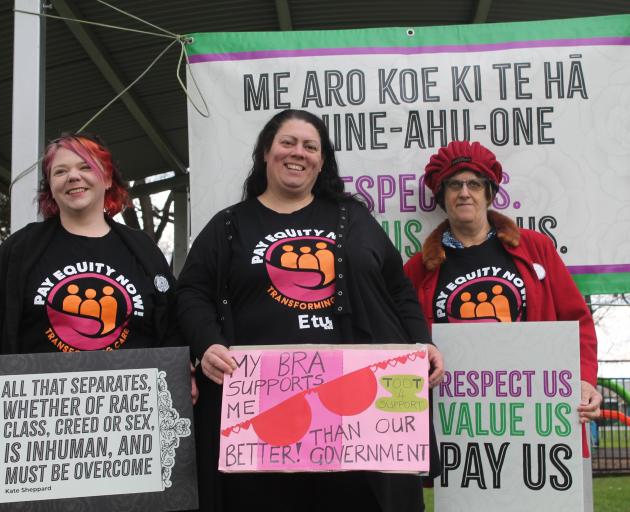Politics
Aged Care Workers Demand Fair Pay After Law Change

Aged care support workers are raising their voices for pay equity following changes to the Equal Pay Amendment Act, which were enacted in May 2023. The legislation increased the threshold for pay equity claims, stipulating that a workforce must be at least 70% female over the previous decade, up from the previous requirement of 60%. Many in the sector, particularly those who identify as female, are now demanding reconsideration of this change.
Gemini Chamberlain, an aged care support worker, expressed frustration at the outcome of negotiations that concluded without any improvements for her predominantly female colleagues. After a demonstration at the office of Member of Parliament Joseph Mooney in May, Chamberlain, along with fellow workers and union representatives, convened again at the Eccles St playground to discuss their ongoing pay equity concerns.
Despite the law change, Chamberlain shared that workers were advised to continue bargaining. She highlighted the harsh reality faced by her colleagues, stating, “Most of our co-workers are on or close to minimum wage.” She added, “Now we’re near on minimum wage and we’ve got qualifications. How is that legal?”
Chamberlain’s commitment to her role stems from a sense of duty, as she noted, “Somebody had to look after our elderly.” This sentiment was echoed by Pam King, a home support worker, who questioned who would care for them in their old age. The workers are calling on the government to recognize their vital contributions to the community and address their compensation concerns.
Chamberlain articulated their plea: “What we’re asking for is the government to actually see us and not just sweep us under the rug and decide that we’re not worthy.” The ongoing struggle for fair wages highlights the need for a serious examination of pay equity within the aged care sector, particularly as the workforce remains predominantly female and essential to community well-being.
As negotiations have yielded little progress, the workers find themselves at a critical juncture, advocating for recognition and fair treatment in an industry that many rely on. The outcome of their efforts will significantly impact not only their livelihoods but also the quality of care provided to vulnerable populations.
-

 World3 months ago
World3 months agoTest Your Knowledge: Take the Herald’s Afternoon Quiz Today
-

 Sports3 months ago
Sports3 months agoPM Faces Backlash from Fans During Netball Trophy Ceremony
-

 Lifestyle3 months ago
Lifestyle3 months agoDunedin Designers Win Top Award at Hokonui Fashion Event
-

 Sports3 months ago
Sports3 months agoLiam Lawson Launches New Era for Racing Bulls with Strong Start
-

 Lifestyle3 months ago
Lifestyle3 months agoDisney Fan Reveals Dress Code Tips for Park Visitors
-

 World4 months ago
World4 months agoCoalition Forms to Preserve Māori Wards in Hawke’s Bay
-

 Health3 months ago
Health3 months agoWalking Faster Offers Major Health Benefits for Older Adults
-

 Politics3 months ago
Politics3 months agoScots Rally with Humor and Music to Protest Trump’s Visit
-

 Top Stories4 months ago
Top Stories4 months agoUK and India Finalize Trade Deal to Boost Economic Ties
-

 Entertainment3 months ago
Entertainment3 months agoExperience the Excitement of ‘Chief of War’ in Oʻahu
-

 World4 months ago
World4 months agoHuntly Begins Water Pipe Flushing to Resolve Brown Water Issue
-

 Science4 months ago
Science4 months agoNew Interactive Map Reveals Wairarapa Valley’s Geological Secrets









